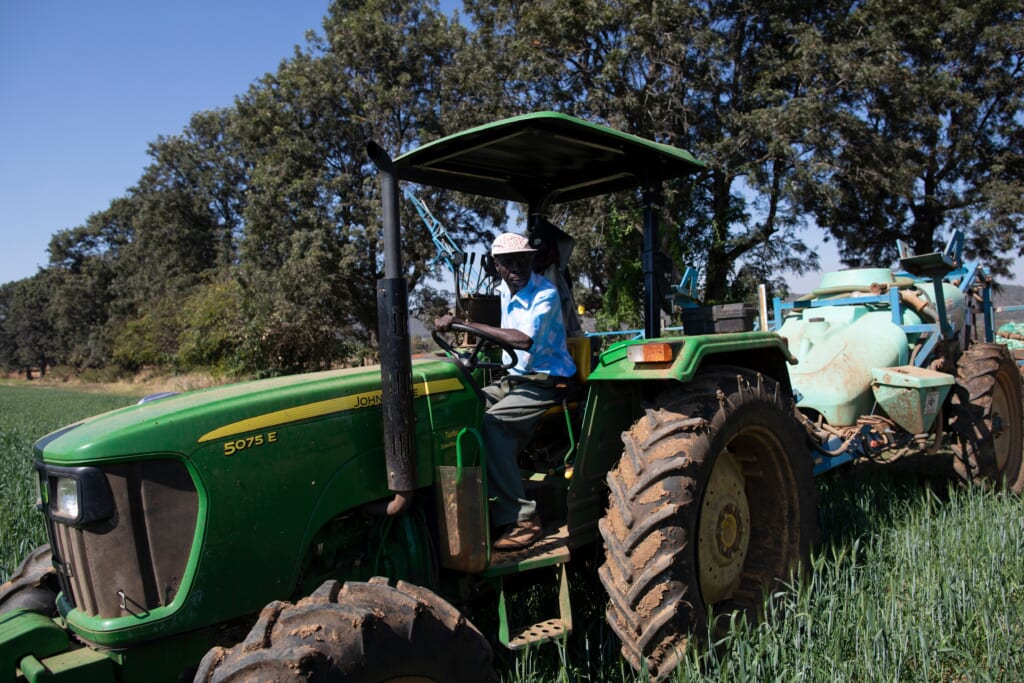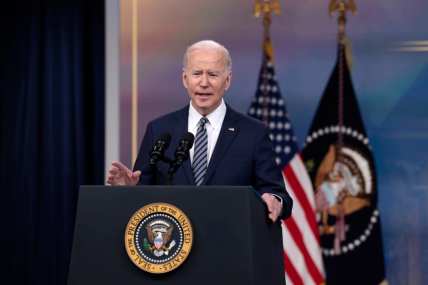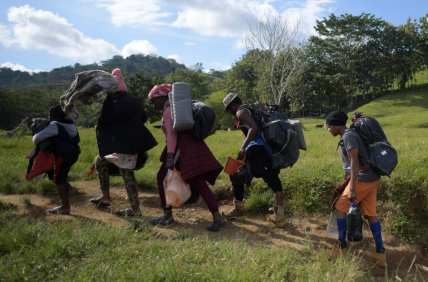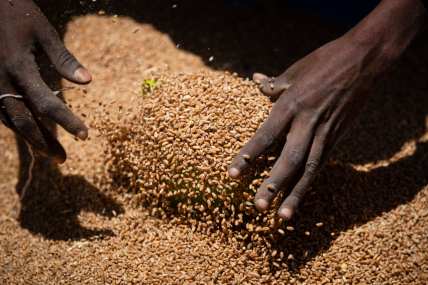Food crisis in Africa and worldwide is getting worse amid Ukraine war — here’s how to reduce it
OPINION: Africa is already facing its worst food shortages in history due to conflicts and drought.

In addition to murdering thousands of innocent civilians and causing billions of dollars in damage, Russian President Vladimir Putin’s war against Ukraine is creating food shortages that will hurt hundreds of millions of people worldwide.
Even before Putin sent his troops into Ukraine in February, the United Nations reported that up to 811 million people around the world — more than twice the size of the entire U.S. population — don’t have enough to eat.
The food crisis is particularly dire in Africa, already facing its worst food shortages in history due to conflicts and drought, and where 21% of the population is undernourished. The U.N. reported that that’s more than twice as high as any other region on a per capita basis.
Tragically, United Nations World Food Programme Executive Director David Beasley said last year that about 9 million people die from hunger every year around the world — a number greater than the population of New York City, and greater than the approximately 6.2 million global deaths attributed to the coronavirus pandemic.
A report by the World Food Programme released on Thursday shows that as many as 47 million additional people will fall into acute hunger in 81 countries worldwide this year as a result of the Ukraine war. What’s more, African nations are expected to suffer the most.

As horrific as those statistics are, the war in Ukraine is certain to make them worse this year.
Ukraine and Russia normally produce almost 30% of the wheat traded around the world, and over half of the wheat consumed in 26 countries in Africa and elsewhere. The two nations are also major global exporters of corn and fertilizer. Ukraine alone produces crops that feed 400 million people worldwide in a typical year.
Putin’s war has halted exports from Ukraine because Russian warships are blockading and bombing Ukrainian ports, and have bombed farms and food storage facilities. On top of this, Ukrainian farmers would normally be planting crops at this time of year, but many can’t because of Russian attacks.
In addition, Russian exports have dropped dramatically because of economic sanctions imposed by many nations. As a result of the export reductions from Ukraine and Russia, food prices have hit record highs worldwide, impacting developing nations and low-income people most severely.
Last month, U.N. Secretary-General Antonio Guterres said, “We must do everything possible to avert a hurricane of hunger and a meltdown of the global food system.” He’s right. While an end to Putin’s war of aggression against Ukraine is urgently needed, there are other actions the U.S. and other nations should take before and after the war ends to reduce global hunger and save lives.
First, nations with large quantities of stored grain should buy more from farmers and sell the grain to countries that can afford it, while donating grain to developing nations that need assistance. The U.S. Agriculture Department reported in January that 11.6 billion bushels of corn, about 3.1 billion bushels of soybeans, nearly 1.4 billion bushels of wheat, and millions of bushels of other grains were in storage in America at the end of 2021.
We need to keep enough grain on hand to prevent shortages in the U.S., of course, but anything above that amount should go to nations facing food shortages. If these releases cause grain prices to fall we should subsidize American farmers to get a fair price for their crops.

Second, we should expand efforts to help farmers in poor nations increase their own crop production. President Biden made a $10 billion commitment in a speech at the U.N. last year to increase food production in the U.S. and abroad over five years, splitting the investment evenly between America and other nations. To make up for a drop in exports from Ukraine and Russia, Congress and the president should increase this commitment, particularly in assistance to other nations.
Third, temporarily suspend the Renewable Fuel Standard, which since 2005 has required transportation fuels to contain a minimum amount of renewable fuels (usually 10% ethanol made from corn). As a result of this standard, about 40% of the U.S. corn crop currently is used to make ethanol, instead of being used to feed people and livestock. U.S. corn farmers and the ethanol industry should receive government subsidies to make up for the financial losses they would suffer. The Renewable Fuel Standard should be restored once Ukraine can resume corn exports at prewar levels.
Fourth, create more federal incentives for companies to produce electric vehicles and for consumers to buy them. This will reduce both oil and ethanol consumption and combat climate change. The bipartisan infrastructure law enacted last year provided $7.5 billion to install 500,000 electric vehicle charging stations around the nation by 2030. President Biden’s Build Back Better bill, which was passed by the House but blocked in the Senate, would have provided tax credits of up to $12,500 to consumers to buy electric vehicles. The Senate should OK those credits and Congress and the president should also consider other actions to accelerate the switch to electric vehicles.
Fifth, increase U.S. fertilizer production to the greatest extent possible to make up for lost production from Ukraine and Russia. The Agriculture Department announced a $250 million grant program last month to do this. That’s a good start and could be expanded.
No one knows how long the war in Ukraine will continue or how long it will take to restore Ukrainian crop exports. And we don’t know when trade sanctions leveled on Russia by the U.S. and other nations will end.
In light of this and the fact that hunger was a global problem long before Russia invaded Ukraine, the above steps would be a good start in the life-saving mission of helping to reduce hunger around the world. Deaths from hunger should be something we read about in history books, not news reports.

Donna Brazile is an ABC News Contributor, veteran political strategist, an adjunct professor at Georgetown University, and the King Endowed Chair in Public Policy at Howard University. She previously served as interim Chair of the Democratic National Committee (DNC) and of the DNC’s Voting Rights Institute. She managed the Gore campaign in 2000 and has lectured at more than 225 colleges and universities on race, diversity, women, leadership and restoring civility in politics. Brazile is the author of several books, including the New York Times’ bestseller “Hacks: The Inside Story of the Break-ins and Breakdowns That Put Donald Trump in the White House.” @DonnaBrazile
TheGrio is now on your TV via Apple TV, Amazon Fire, Roku, and Android TV. Also, please download theGrio mobile apps today!”



